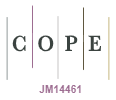The construction of a youth policy with young people: possibilities and limits of a concrete experience
DOI:
https://doi.org/10.5585/eccos.n49.13191Keywords:
Valuative Inquiry, Youth, Public PoliciesAbstract
This paper is a review of an empirical research on youth political participation, but it is also the report of experience of building a youth policy, together with the youths of a municipality of. In the years of 2013 and 2014. The question of the research was: o what extent it would be possible to construct a public policy with the involvement and the direct participation of the target public? The objective was to analyze the relations that are established in the construction of a public policy with the direct participation of the young people. The method is compatible with the research intervention, which involved the development of a map of youth in the city and used the procedures of the valuation to sensitize, articulate and mobilize more than 4 thousand young people aged 15 to 29 years in 92 cycles of dialogue, to reflect on their potentialities and raise priorities in the construction of specific policies, having as background the realization of a social pedagogy. In the process, leaders who presented to the public power a Youth Charter of the city, arrived at the Project Law for the creation of the Municipal Youth Council and a plan of action for the implementation of the Youth Statute, in the municipality.Downloads
References
CALIMAN, G. Pedagogía social. In: PRELLEZO, J.M. (Org). Diccionario de Ciencias de la Educación. Madrid: Editorial CCS, 2009. p. 889-890.
ADORNO, T. W. Capitalismo tardio ou sociedade industrial. São Paulo: Ática, 1986. (Coleção Grandes Cientistas Sociais).
______. Educação e emancipação. São Paulo: Paz e Terra, 1995.
______. Teoria da semicultura. Educação&Sociedade, ano IV, n. 191, p. 1-19, ago. 2005.
ADORNO, T. W.; HORKHEIMER, M. Dialética do esclarecimento. Rio de Janeiro: Jorge Zahar, 1985.
BAUMAN, Z. Confiança e medo na cidade. Rio de Janeiro: Editora Zahar, 2009.
______. Capitalismo parasitário. Rio de Janeiro: Zahar, 2010a.
______. Comunidade: a busca de segurança no mundo atual. Rio de Janeiro: Zahar, 2010b.
______. Sobre educação e juventude. Rio de Janeiro: Editora Zahar, 2013a.
______. Danos Colaterais. Rio de Janeiro: Zahar, 2013b.
BRASIL. Constituição (1988). Constituição da República Federativa do Brasil. Brasília, DF: Senado Federal, 1988.
______. Câmara dos Deputados. Projeto de Lei nº 4.530, de 2004. Aprova o Plano Nacional de Juventude e dá outras providências. Brasília, DF: Câmara dos Deputados, 2004.
______. Secretaria Nacional de Juventude. As 22 prioridades da 1ª Conferência. Brasília, DF: SNJ, 2008a.
______. Secretaria Nacional de Juventude. Guia das políticas públicas de juventude. Brasília, DF: SNJ, 2010a.
______. Secretaria Nacional de Juventude. Marcos da política nacional de juventude. Disponível em: <http://www.juventude.gov.br/marcos/view>. Acesso em: 24 jul. 2012d.
_______. Secretaria Nacional de Juventude. Mapa da violência 2013. Brasília, DF:. Disponível em: <http://www.mapadaviolencia.org.br>. Acesso em: 25 dez. 2013.
______. Lei nº 12.852, de 05 de agosto de 2013. Institui o Estatuto da Juventude. Diário Oficial da União, Brasília, DF, 2013a.
COOPERRIDER, D. L. Captando o que mais importa na prática do appreciative inquiry. Cleveland, OH: Western Reserve University, 1998.
COSTA, M. O. Trabalho decente segundo estudos da Organização Internacional do Trabalho. Jus navigandi, out. 2010. Disponível em: <http://jus.com.br/revista/texto/17550/trabalho-decente-segundo-estudos-da-organizacao-internacional-do-trabalho>. Acesso em: 17 set. 2012.
COSTANZI, R. N. Trabalho decente e juventude no Brasil. Brasília, DF: Organização Internacional do Trabalho, 2009.
GOHN, M. G. Educação não-formal na pedagogia social. In: CONGRESSO INTERNACIONAL DE PEDAGOGIA SOCIAL, 1., 2006, São Paulo. Anais... São Paulo: Faculdade de Educação, Universidade de São Paulo, 2006. Disponível em: <http://www.proceedings.scielo.br/scielo.php?script=sci_arttext&pid=MSC0000000092006000100034&lng=en&nrm=abn>. Acesso em: 10 ago. 2012.
HORKHEIMER, M.; ADORNO, T. W. Temas básicos de sociologia: Estudos de comunidade. São Paulo: Editora Cultrix, 1956.
MOGI DAS CRUZES. História. Disponível em: <http://www.mogidascruzes.sp.gov.br/turismo/historia.php>. Acesso em: 29 nov. 2013.
ORGANIZAÇÃO DAS NAÇÕES UNIDAS (ONU). Objetivos de Desenvolvimento do Milênio (ODM). Disponível em: <http://www.odmbrasil.gov.br/>. Acesso em: 12 nov. 2013.
Downloads
Published
How to Cite
Issue
Section
License
Copyright (c) 2019 EccoS – Revista Científica

This work is licensed under a Creative Commons Attribution-NonCommercial-ShareAlike 4.0 International License.






